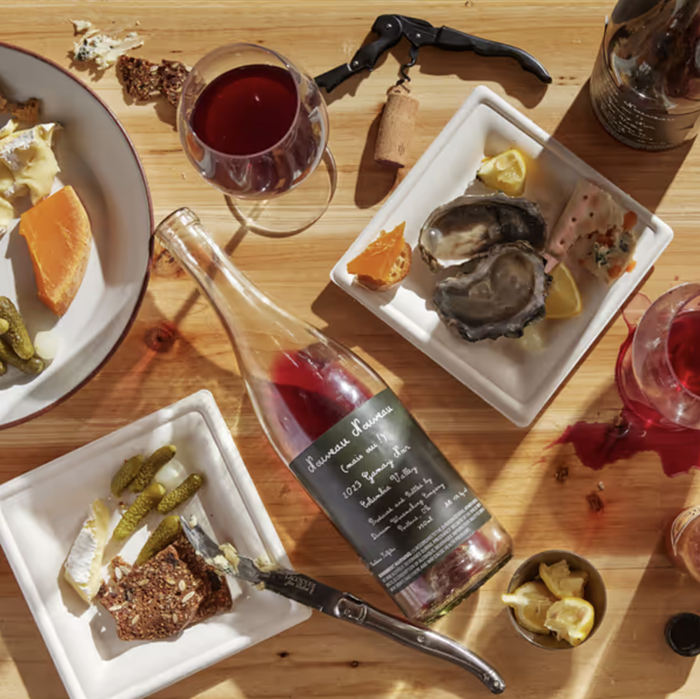To-may-to. To-maw-to.
Fish. Ghoti (George Bernard Shaw’s alleged, alternate spelling).
Trump will Make America Great Again. Trump sucks.
While the pronunciation of tomatoes, the spelling of fish, and the state of American politics ought not pertain to beer—plain, straightforward, locally brewed beer—I catch myself thinking whether beer can be right or wrong. Orwellian doublespeak has seeped into beer culture and, though any given beer’s deliciousness is subjective, there are those who claim specific beers are objectively good or bad. I know this is an abstract and discarnate theme for a gall-dang beer column, but it’s better than poring through the New York Times or NPR (while they remain) and fuming over headline news.
Apricots, Gruits, and Goses
Because we don’t live in Portland, Maine, no one here actually says to-maw-to, but we are divided into those who say ape-ricot and app-ricot. Apropos of fruit, I caught myself pondering diverging pronunciations while tamely rocking out to Portland’s own Fruit Bats at Revolution Hall. During their entire set, an illuminated sign with their name kept flickering, so my eyes kept focusing on the word “fruit.” In turn, my mind jogged over to the debate—albeit only in the nerdiest of beer circles—about whether herbal, hopless beers named gruits are pronounced groo-it (rhyming with intuit), or groot (rhyming with fruit). The answer is definitively the latter. And lest ye think, “Who cares? No one makes gruits in Portland,” note that Brewed by Gnomes just launched what seems like a sublet back room at Growlers Hawthorne in which to properly enjoy their ancient ales spiced with roots, teas, flowers, and other not-hops.
More popularly, there’s an interminable amount of I say/you say in the realm of beer. As the organizer of the forthcoming gose festival (because if anywhere is going to have such a thing, it’s the City of Roses, or in this case, the City of Goses), it pains me every time I hear someone call this Leipzig-style of tart, salty beer “goes.” It’s indubitably “go-zuh.” And yet, if everyone were to call it “goes” the way most people pronounce forte as “for-tay” (much to my Francophile grandmother Goldyne’s consternation, since it’s actually “fort”), does the language evolve so that it becomes for-tay? Or groo-it? Or goes?
Otis Redding, McMenamins, and Rogue Ales
There are, perhaps, fewer than 500 perfect songs ever recorded. “Sittin’ on the Dock of the Bay” is one of them. And yet it’s been mythologized that Otis Redding himself felt it was unfinished, imperfect. The whistling in the waning seconds was a placeholder, but a fatal plane crash preempted the song’s completion. I empirically claim the song is perfect, but in truth, artistic perfection is subjective.
Myriad subjects are subjective, yet some argue as if their view is gospel. This writer’s previous Lush Life column centered around the notion that McMenamins beer, contrary to popular belief based on antiquated experiences, doesn't suck. And then over at Willamette Week, they issued an ukase that Rogue sucks—or, more specifically, that they “don’t get Rogue Ales.” As one of the top 10 selling Oregon brewed brands in state, Rogue’s suckiness is subjective. Rogue has earned 29 medals at the Great American Beer Fest, the third most out of all Oregon breweries. (Fact: Zero medals were earned for bacon, grape, or other doughnut-inspired flavors.) They’ve earned those medals over 18 of the last 26 years, so you can’t even point to a particular sucky era when they were just phoning it in. (Hilariously and trolltastically, Rogue responded by issuing an edict that they “don’t get snow” during our temporary tundra.)
If there’s a point in any of this, it’s that it’s fruitless to argue about beer. Beers can contain flaws, and a drain-pour is always a bummer. But the incessant search for the best IPA or, on the flip side, ranting that craft beer has been ruined by the pursuit of hoppiness, is subjective at best and counterproductive at worst. Eater and Thrillist are funded by easily enraged, clickbaited beer geeks.
We’ve barely dipped our toes into 2017, and it’s clear that the Oxford Dictionary’s Word of the Year—seamlessly following last year’s “post-truth”—will be either #fakenews or “alternative facts.” Shaw’s famous, creative reimagining of the spelling of fish as “ghoti” (taking the gh from enough to find the F sound and the ti from nation to supply the quieting sh sound) holds up a mirror, linguistically, to our irregularities. Then again, that’s an “alternative fact,” since Shaw wrote no such thing. A story in the New York Times published in 2010 revealed that a 19th century journalist named William Ollier caught that particular ghoti before Shaw was even born. If there’s one thing the paper of record has laid to rest as far as beer facts, it’s that, according to their story published last August, Cascade Kriek is the number-one sour beer in America. Unless you feel otherwise.


















